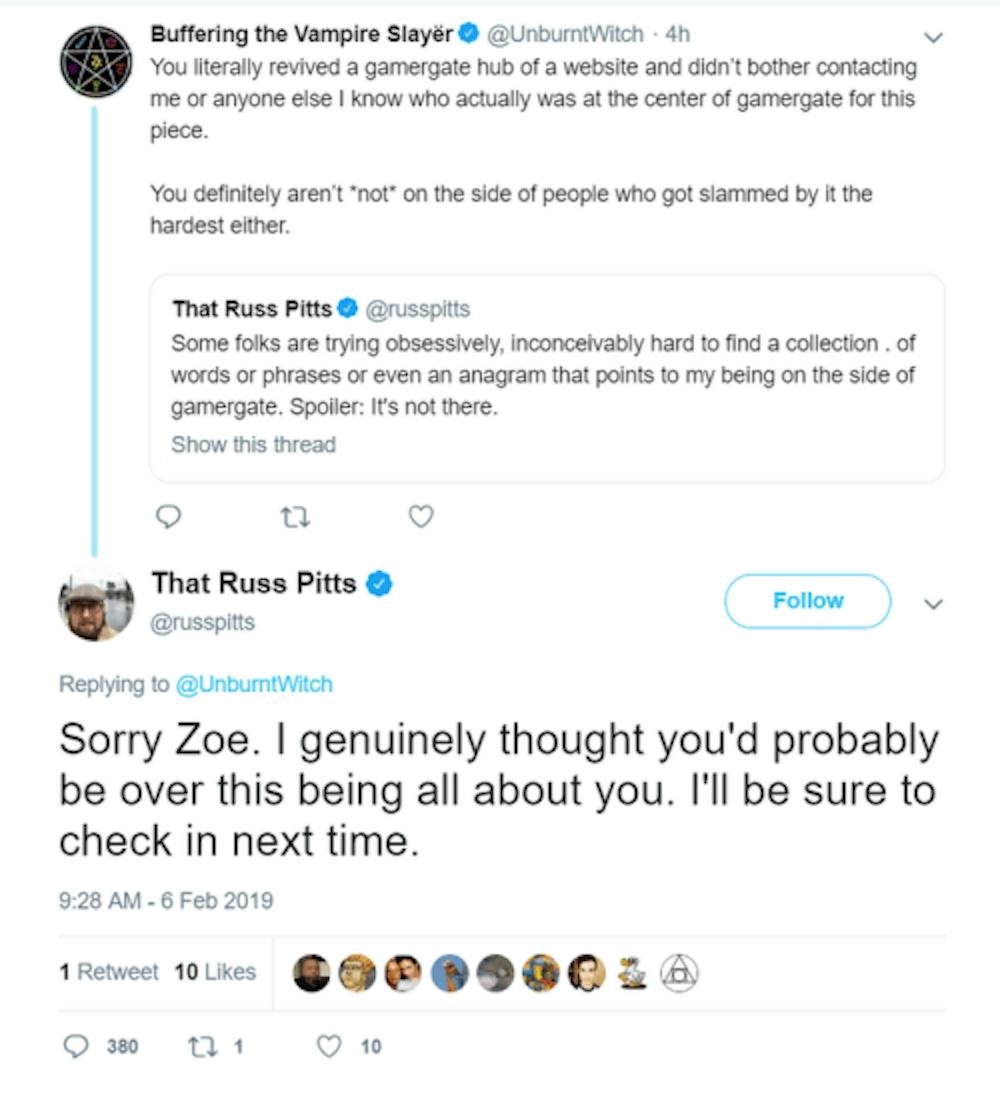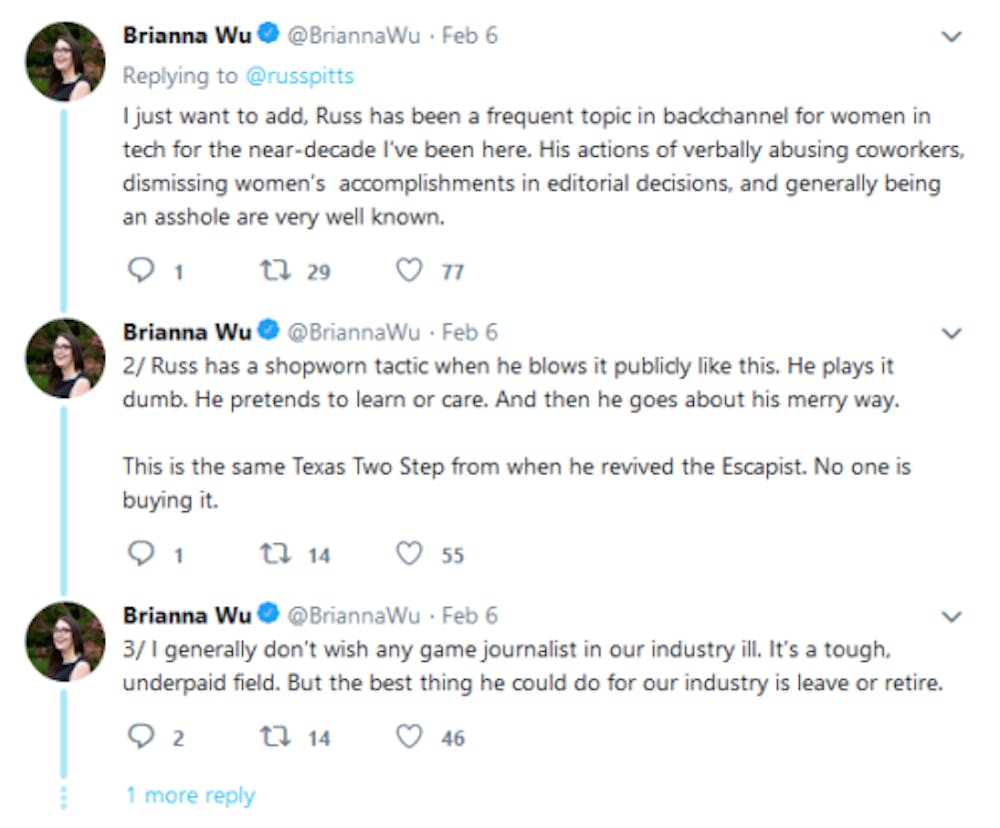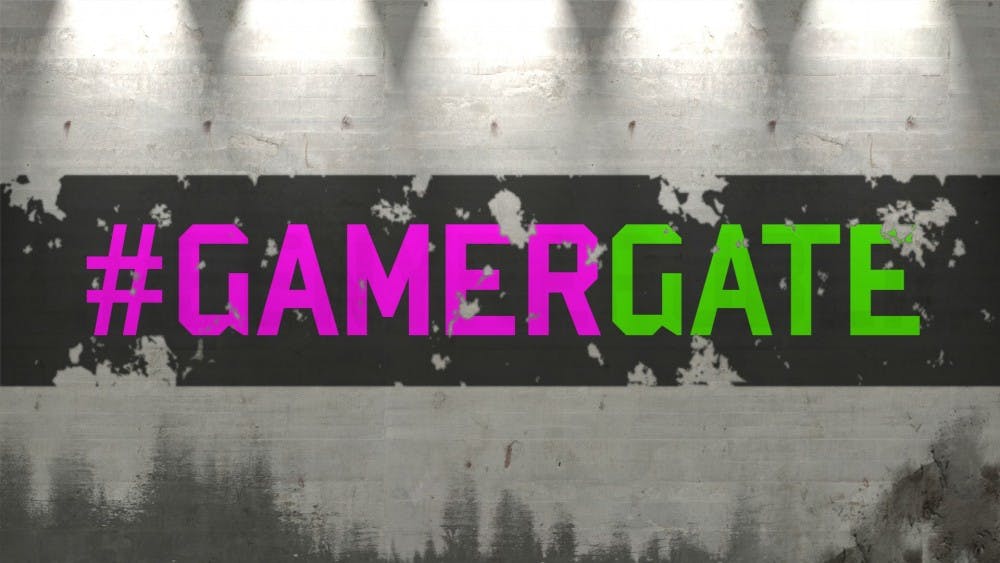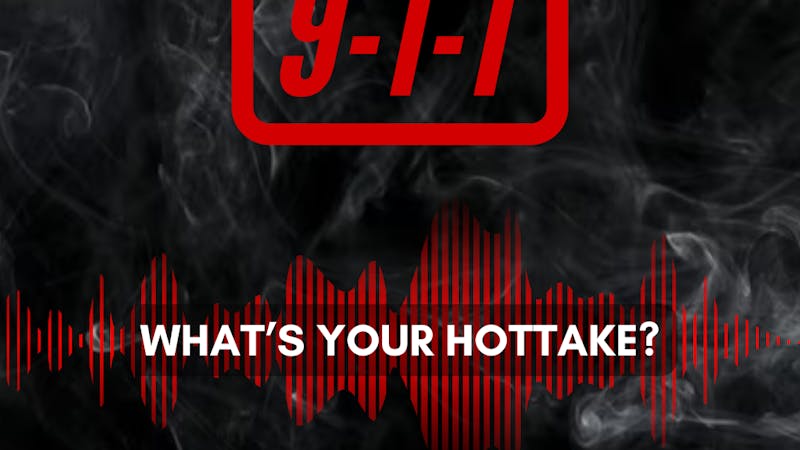This week, Russ Pitts, Editor-in-Chief of Escapist Magazine, published an op-ed on a subject that many had not thought about since it occurred almost five years ago, Gamergate.
For context, Gamergate was a movement back in 2014, in which gaming journalists, primarily women, were targeted online for speaking out about issues within the video game industry. Many of these women took a break from social media or left it entirely. Some quit their jobs and some even had their personal information dumped onto the internet, otherwise known as doxxing.
It’s a sore spot in a lot of people’s memories, so when Pitts’ published his piece discussing it half a decade after the fact, some alarms went off.
The article, titled “How Do We Finally Talk About Ethics?” has since been removed from Escapist, but while it was shown, the article covered issues like the sustainability of triple A games, the ethics of review scores and advance copies, and the journalism industry as a whole. The meat of the article makes a lot of sense, as many issues from the original Gamergate still ring true. Issues like lootboxes, game reviews, and sexual harassment, still remain within the gaming community to this day. But most, if not all of these issues can be discussed on their own, without calling back to the event that left so many people scared to open their Twitter feed.
Speaking of, Twitter users weren’t exactly happy to see Gamergate on their feed again. Zoë Quinn, who was at the forefront of gamer-sponsored abuse, called out Pitts for bringing the attention back to the harassment she and other women endured while posturing as an unbiased party.

Image from Twitter
Brianna Wu, a video game developer who was also the subject of much harassment in 2014, also spoke out against Pitts but focused more on him rather than the article.

Image from Twitter
Wu’s analysis of Pitts’ behavior when confronted seemed to ring true. In a conversation with Eden Rohantensky, Pitts seemed receptive to criticism while the articles in question still remained on his site.
Within 24 hours, the op-ed was subsequently pulled from The Escapist and replaced with an apology, in which Pitts claims he will “do better” going forward.
This shows what viewers of The Escapist saw when clicking on the link to the original article before and after the apology was posted.
Sources: The Escapist, Twitter
Images: The Escapist, KnowYourMeme
For more entertainment, tech, and pop culture related content, visit us at Byte BSU!



















